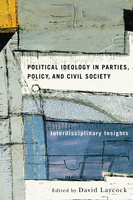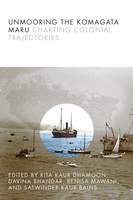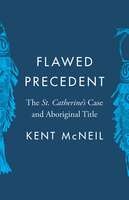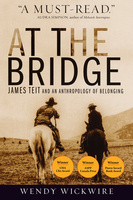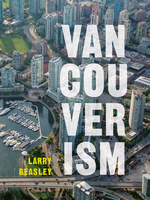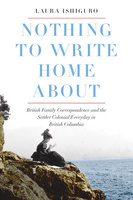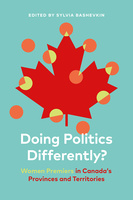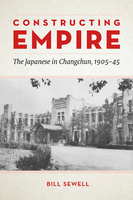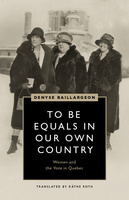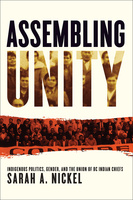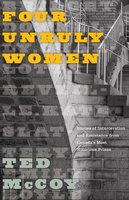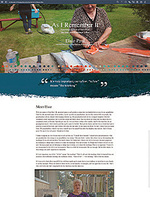A World without Martha
A Memoir of Sisters, Disability, and Difference
A World without Martha is an unflinching yet compassionate memoir of how one sister’s institutionalization for intellectual disability in the 1960s affected the other, sending them both on separate but parallel journeys shaped initially by society’s inability to accept difference and later by changing attitudes towards disability, identity, and inclusion.
Political Ideology in Parties, Policy, and Civil Society
Interdisciplinary Insights
This important study demonstrates that varied disciplinary approaches can illuminate the reach and impact of political ideologies on both politics and society.
Moments of Crisis
Religion and National Identity in Québec
Wide-ranging and theoretically sophisticated, Moments of Crisis offers a groundbreaking explanation for why religion continues to be implicated in national identity crises in Québec.
Canada on the United Nations Security Council
A Small Power on a Large Stage
This is the definitive history of the Canadian experience, both its successes and failures, on the world’s largest stage – the United Nations Security Council.
Unmooring the Komagata Maru
Charting Colonial Trajectories
Unmooring the Komagata Maru challenges conventional historical accounts to consider the national and transnational colonial dimensions of the Komagata Maru incident.
Moved by the State
Forced Relocation and Making a Good Life in Postwar Canada
Through five diverse episodes of forced relocation across Canada, Moved by the State offers a new look at the power of the welfare state and the political culture of postwar Canada.
Flawed Precedent
The St. Catherine’s Case and Aboriginal Title
This illuminating account of the St. Catherine’s case of the 1880s reveals the erroneous assumptions and racism inherent in judgments that would define the nature and character of Aboriginal title in Canadian law and policy for almost a century.
At the Bridge
James Teit and an Anthropology of Belonging
At the Bridge lifts from obscurity the story of James Teit (1864–1922), an outstanding Canadian ethnographer and Indian rights activist whose thoughtful scholarship and tireless organizing have been largely ignored.
Vancouverism
This is the remarkable story, told by a key insider, about Vancouver’s dramatic transformation from a typical mid-sized North American city into an inspiring world-class metropolis celebrated for its liveability, sustainability, and vibrancy.
The Nature of Canada
These captivating reflections on the history of our environment and ourselves will make you think differently not only about Canada’s past but also about our future.
Nothing to Write Home About
British Family Correspondence and the Settler Colonial Everyday in British Columbia
The first substantial study of family correspondence and settler colonialism, Nothing to Write Home About elucidates the significance of trans-imperial intimacy, epistolary silence, and the everyday in laying the foundations of settler colonialism in British Columbia.
Doing Politics Differently?
Women Premiers in Canada’s Provinces and Territories
Do women do politics differently? By assessing the legacies of eleven women premiers, this groundbreaking volume answers a question that has been debated around the world since women first demanded the right to vote and hold public office.
Constructing Empire
The Japanese in Changchun, 1905–45
While other studies focus on the role of diplomats and the military, Constructing Empire demonstrates that building the Japanese empire also required civilian participation.
The Empire on the Western Front
The British 62nd and Canadian 4th Divisions in Battle
Focusing on developments at the divisional level in Britain and Canada, The Empire on the Western Front casts a critical eye on how the British Empire transformed unseasoned volunteers into battle-ready soldiers for the Western Front.
Fighting with the Empire
Canada, Britain, and Global Conflict, 1867–1947
This insightful collection untangles the paradox of mobilizing a Canadian contribution to Britain’s imperial wars – and forging a national identity in the process.
To Be Equals in Our Own Country
Women and the Vote in Quebec
To Be Equals in Our Own Country chronicles the bitter struggle for women’s suffrage in Quebec, the last province to grant Canadian women this fundamental human right.
Assembling Unity
Indigenous Politics, Gender, and the Union of BC Indian Chiefs
Assembling Unity traces the history of pan-Indigenous unity in British Columbia through political negotiations, gendered activism, and the balance and exercise of power.
Four Unruly Women
Stories of Incarceration and Resistance from Canada’s Most Notorious Prison
Filled with stories of pain, regret, and resistance, this chilling account of how four women survived their time at Kingston Penitentiary stands as an indictment of the idea that prisons and punishment are society’s answer to crime.
As I Remember It
Teachings (Ɂəms tɑɁɑw) from the Life of a Sliammon Elder
Meet Elder Elsie Paul and discover her stories, family history, and teachings – ʔəms tɑʔɑw – in a multimedia, online book that captures the wit and wisdom of her storytelling.
Resisting Rights
Canada and the International Bill of Rights, 1947–76
Resisting Rights challenges the myths that Canada has always been at the forefront in the development of international human rights law and led the cause at the United Nations.


